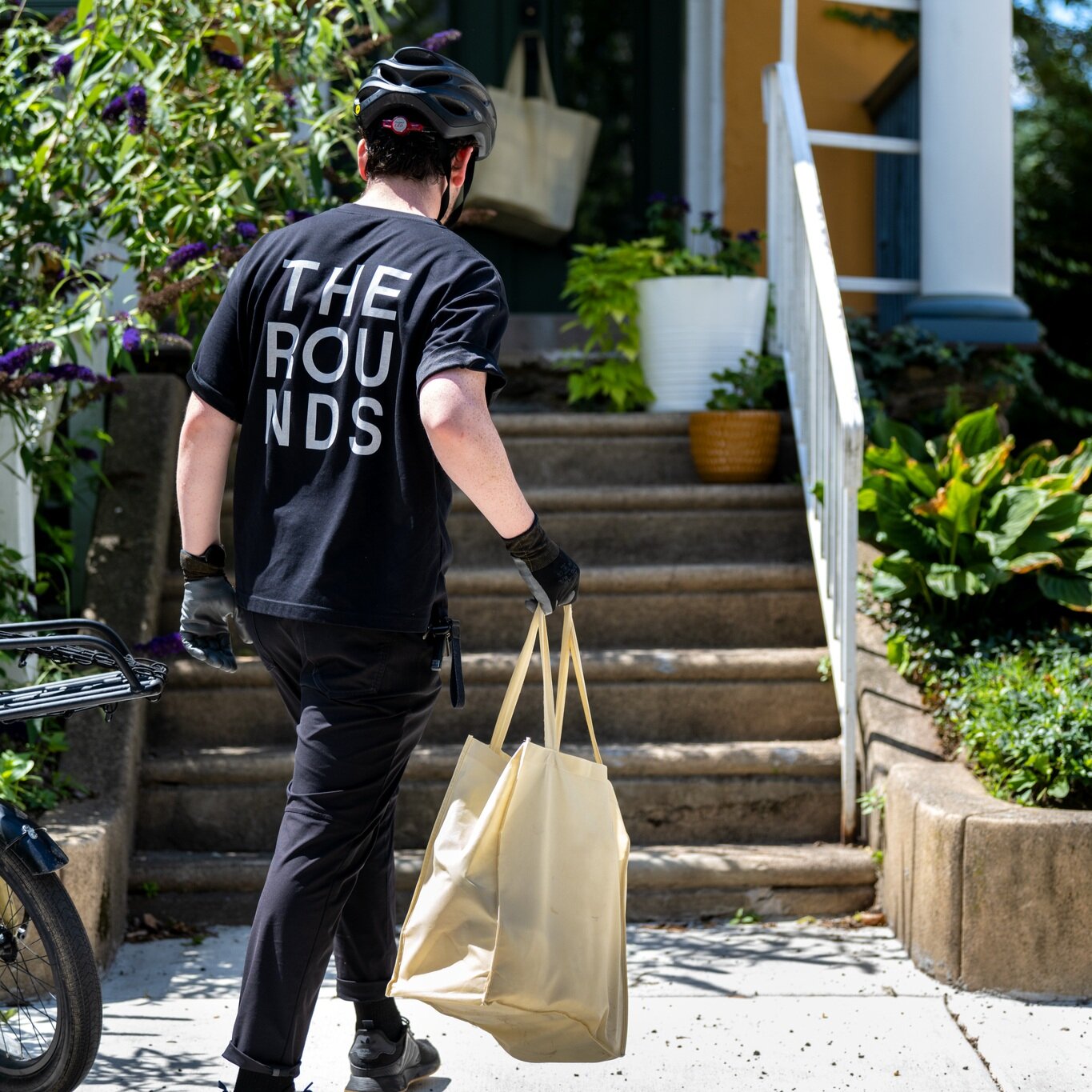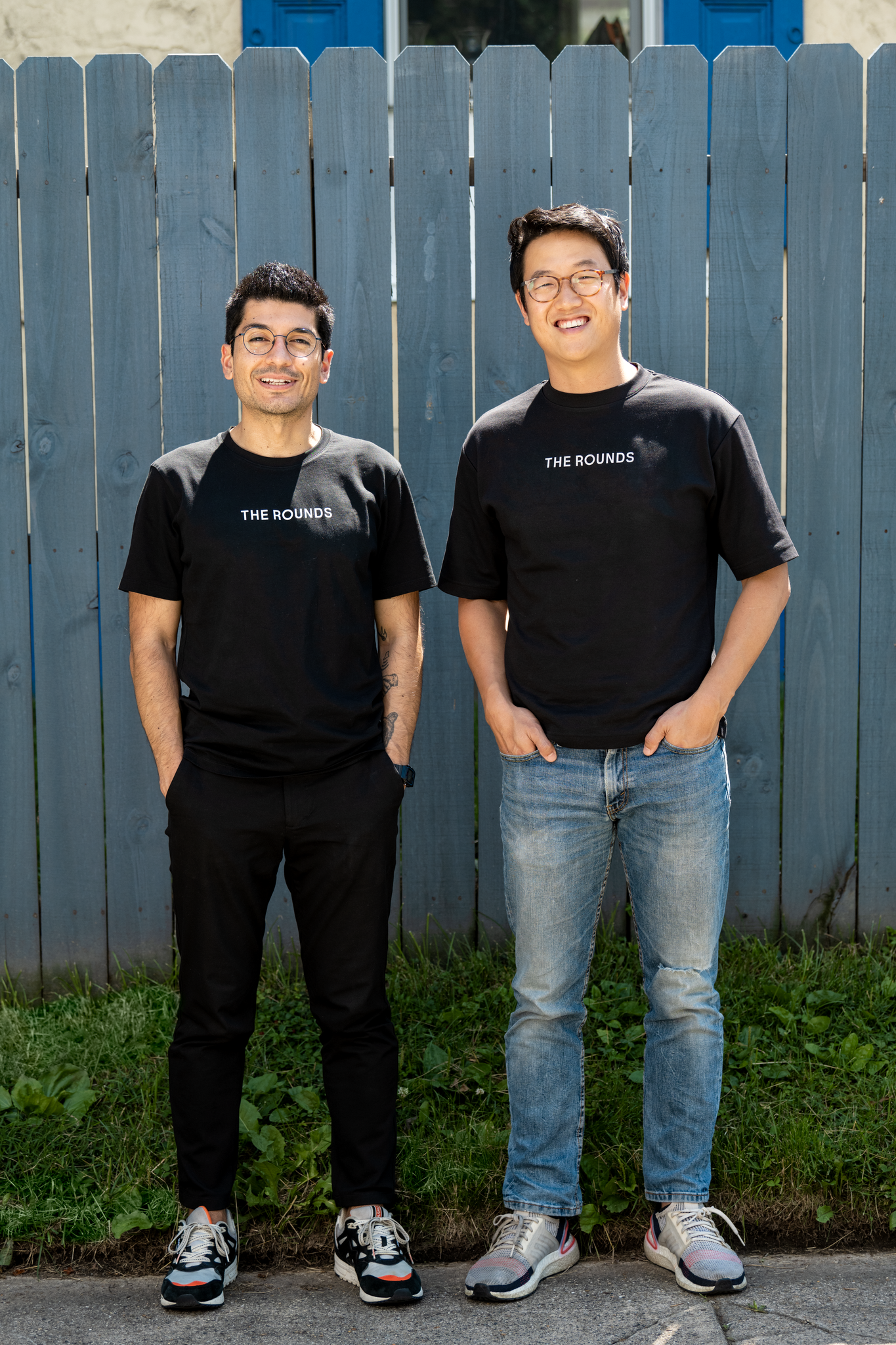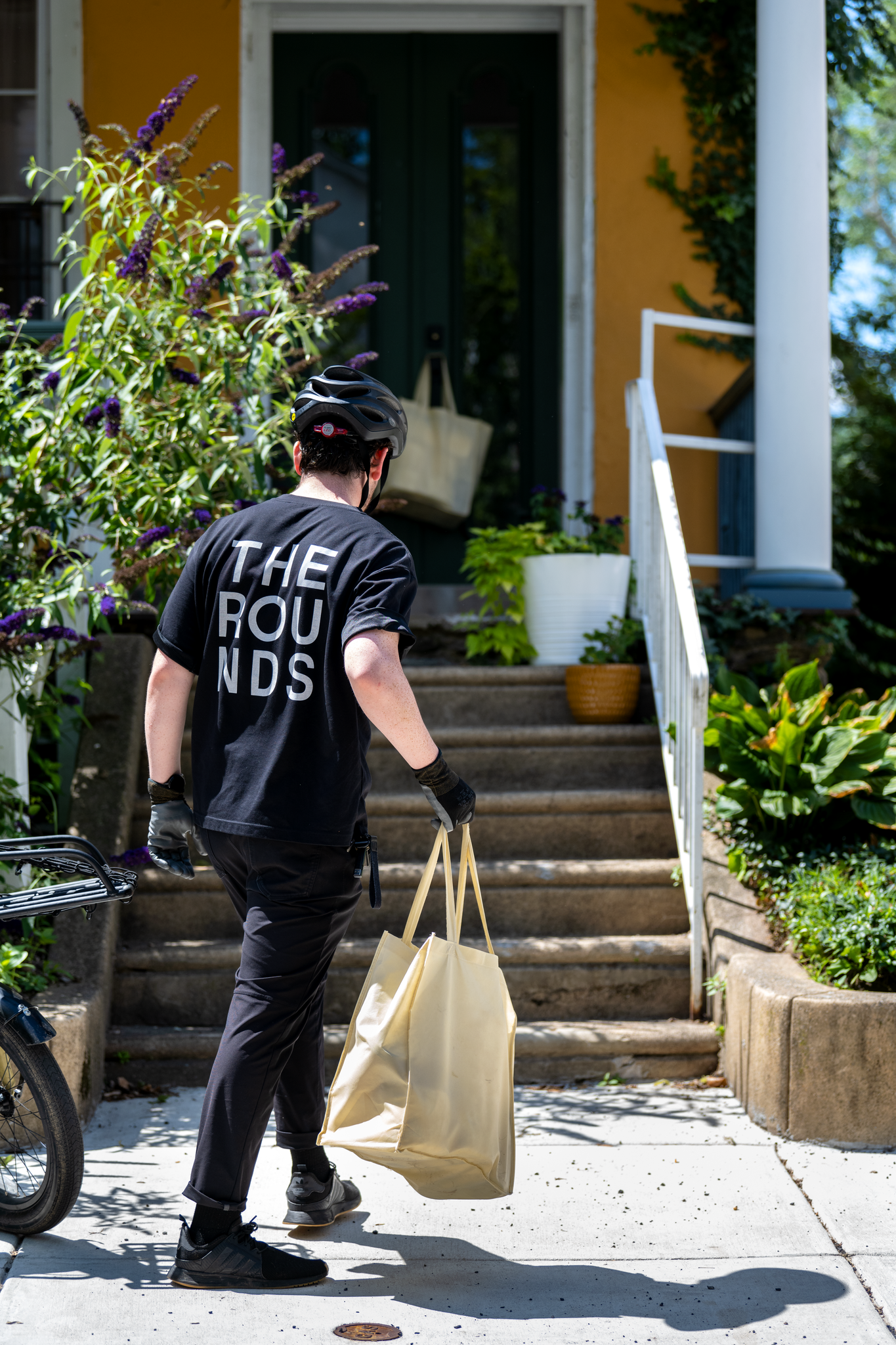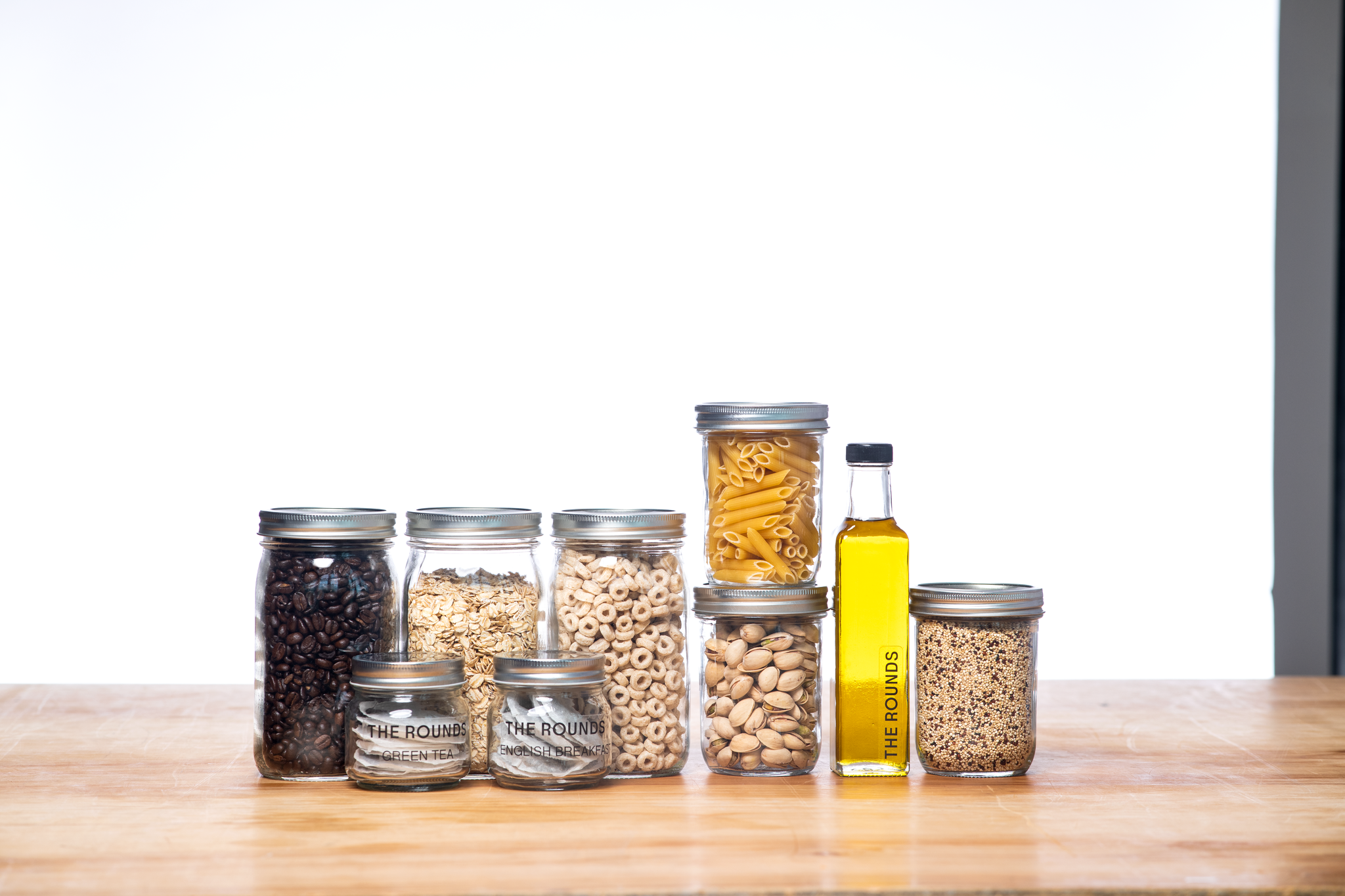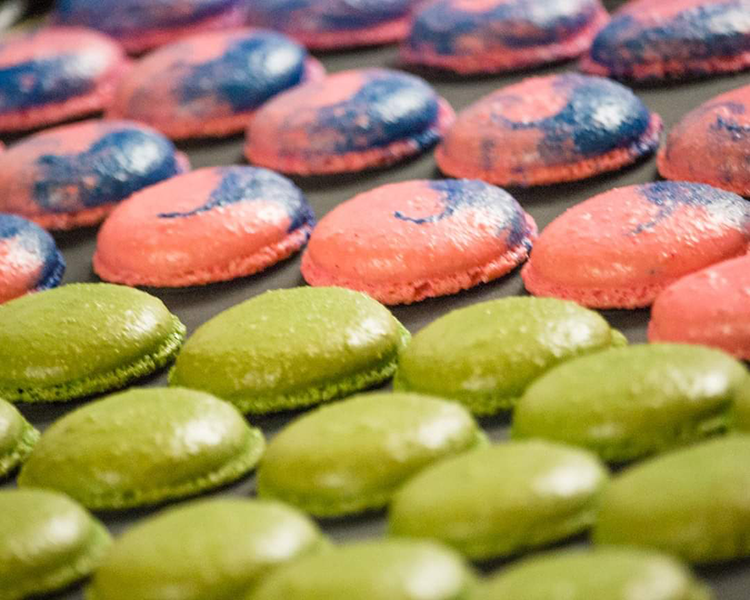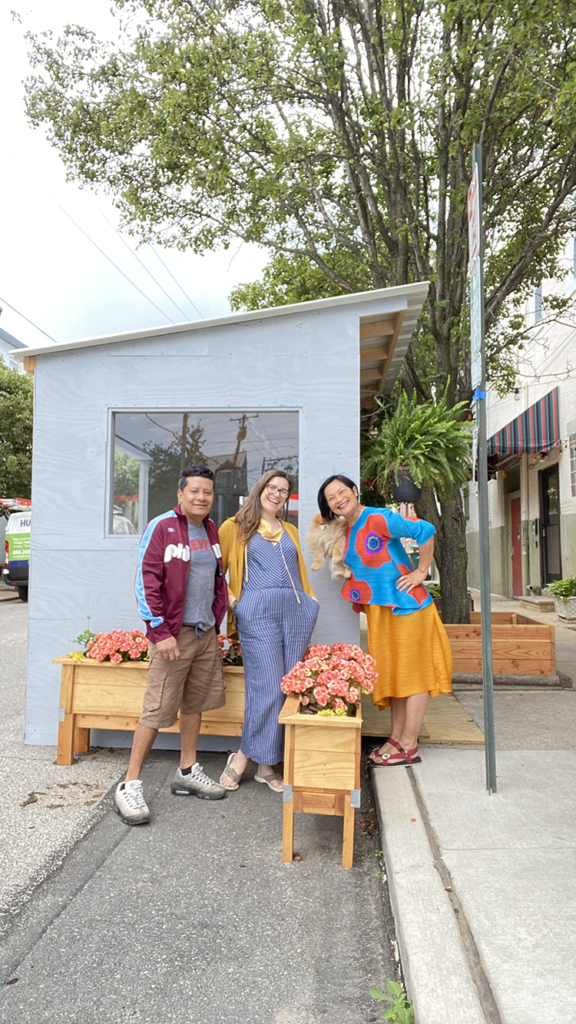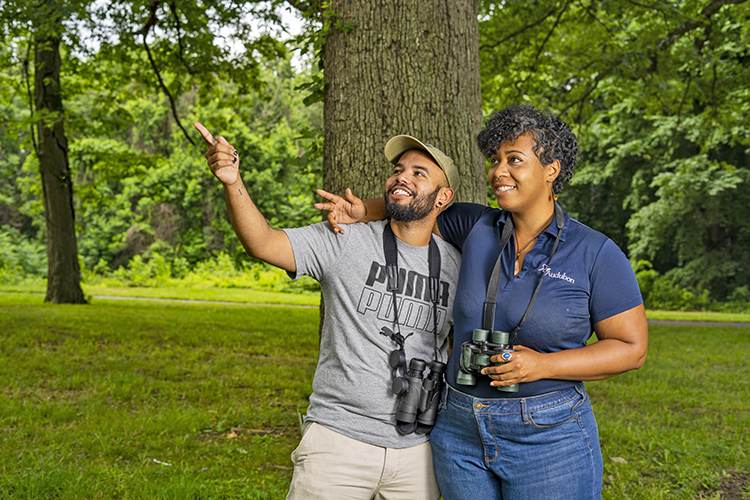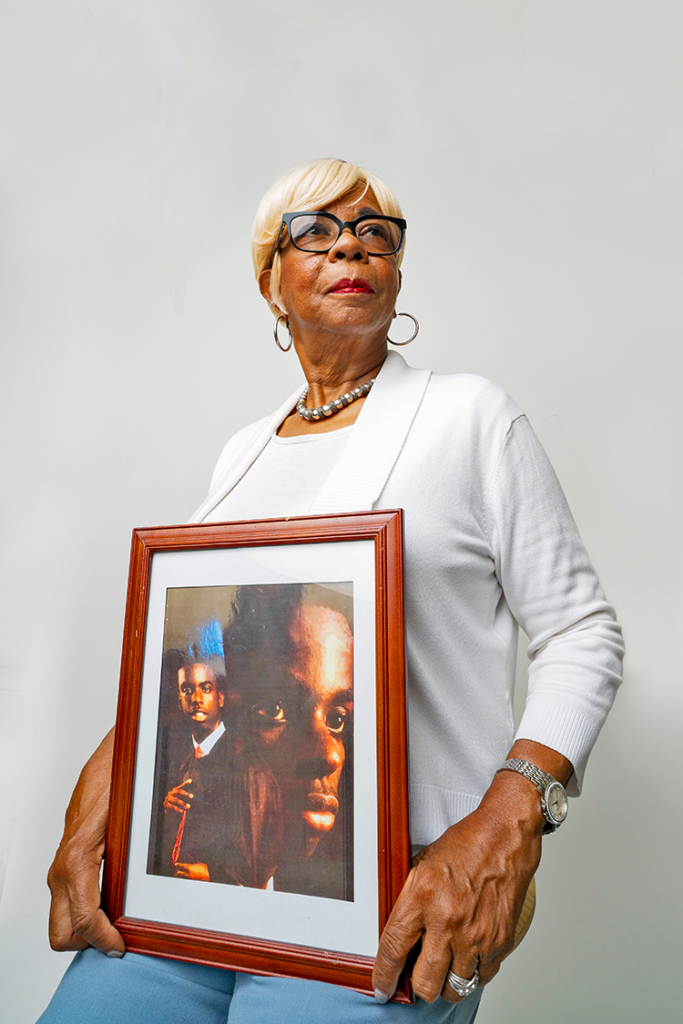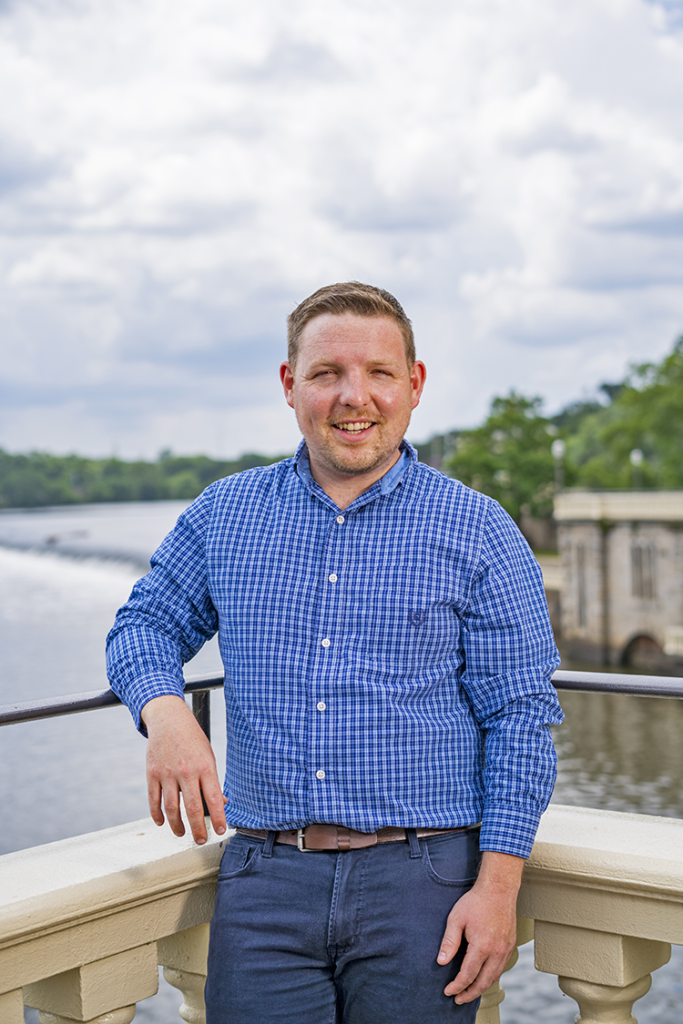Alexander Torrey’s business idea came to him shortly after he ran out of hand soap. He’d placed an order for another bottle online, and when the replacement arrived, he was dismayed.
“It came in a box the size of my kitchen table,” he remembers.
He opened the package, pulled out the soap and put it beside his sink, then paused on his way to the trash can with the old container.
“There’s nothing wrong with it, other than it’s empty and it’s maybe 90 days old,” he recalls thinking.
Then Torrey did the math. What if everyone in his 500-unit high-rise was doing the same? What if everyone in the five high-rises around his was ordering replacements online, too?
That’s a lot of packaging in the trash can, he thought, there has to be a better way.
We live in a world where blue Amazon vans and cardboard boxes abound. Containers and packaging make up a major portion of municipal solid waste, amounting to 82.2 million tons in 2018 (28.1% of total waste). Theoretically, all cardboard can be recycled, however, more than half is burned or winds up in a landfill.
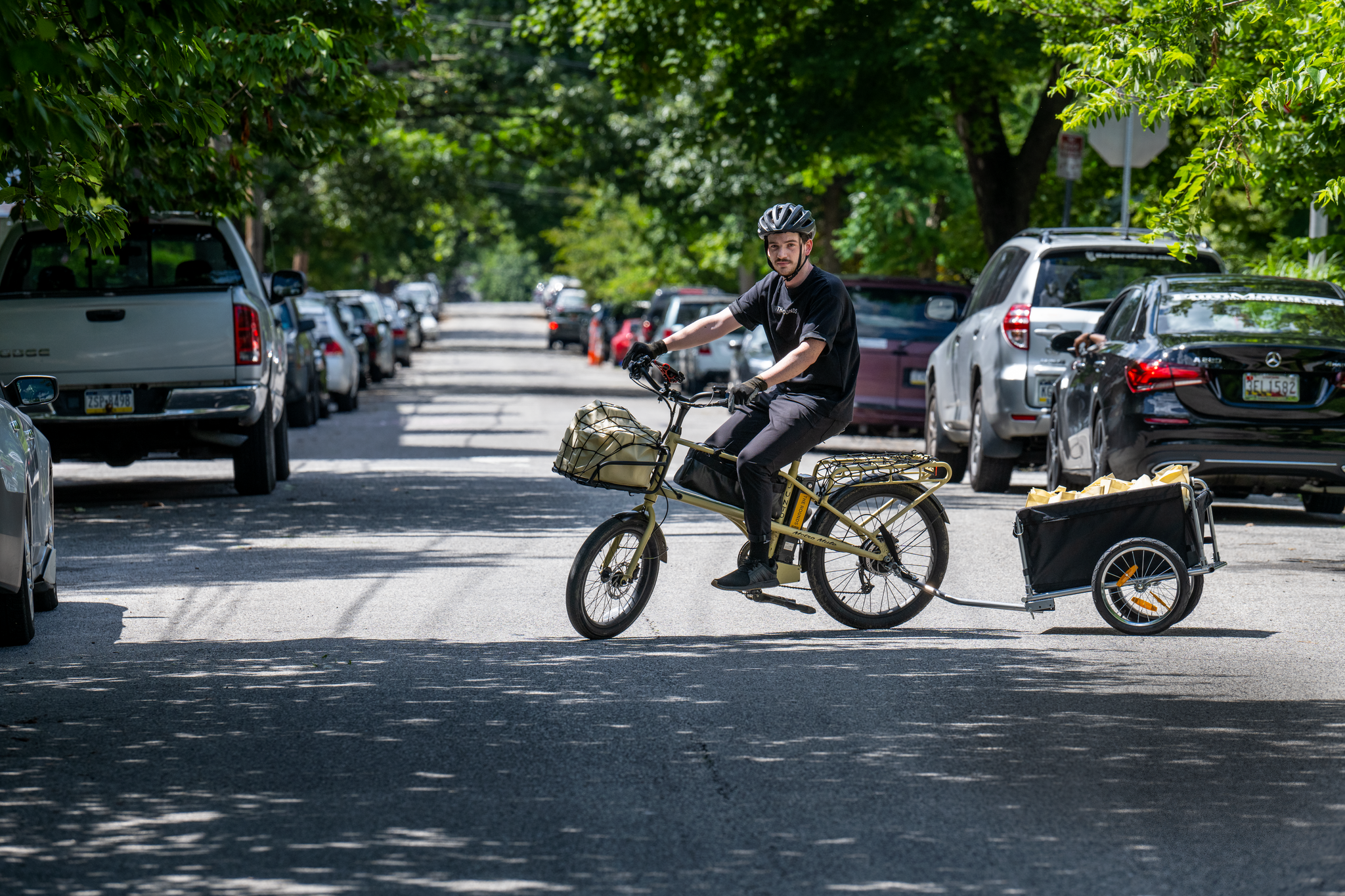
Torrey set out to create a delivery company that would address the convenience consumers enjoy when they order household items from Amazon, but without all of the packaging. The result is The Rounds.
“If we continue the status quo of today’s individual-box-to-door model, cities will see more trucks and trash on our streets.”
—Byungwoo Ko, The Rounds co-founder
When customers place orders at therounds.co, they add items from a selection of household, personal care and pantry products. They sell coffee, soymilk, local breads, as well as various foods in bulk like nuts, pasta, rice, oats and olive oil. Other offerings include dishwasher pods, glass cleaner, disinfecting wipes, toilet paper, feminine hygiene products, and various bath and hand soaps. Currently, The Rounds serves Center City and its surrounding neighborhoods: north, from Fairmount to Fishtown, and south, from Graduate Hospital to Queen Village, as well as several West Philly zip codes.
Raised in a “teach a man to fish” household, Torrey, 34, describes himself as a social entrepreneur who wants to do good and do well. His first taste of the start-up world was a venture with his brother to amplify children’s art by printing it on clothing.
They followed “a very non-traditional path” and ended up pitching the idea on “Shark Tank,” he says.
Despite early success getting their clothing into Bloomingdales, the company’s trajectory felt stunted, cast as a “lifestyle business,” Torrey says, “which is just a way for start-up people to say it’s a business that isn’t gonna raise a ton of venture capital but is by every other definition a very decent business.”
Ultimately, Torrey realized it wasn’t for him.
“Since then, I knew I wanted another opportunity to build a start-up that can have a really big impact,” he says.
Torrey arrived at the Wharton Business School at the University of Pennsylvania in the fall of 2019 equipped with his start-up idea for The Rounds, the zero-waste delivery company.
The prior year he spent at a start-up accelerator, an organization that helped him develop his product and hone his business model. Business school, in Torrey’s eyes, is “a springboard to get access to really great resources, be around really great people and accelerate the idea … knowing that Philadelphia is a really great place to test the idea.”
Launched in 2020, The Rounds estimates an average customer could save about 40 to 50 pounds of packaging waste per year by using its service.
The Rounds’ other co-founder, Byungwoo Ko, affectionately known as BK, 33, is a graduate of Wharton who brings operations and logistics experience from his previous gig at Uber, where he helped with the launch of UberEats. Torrey and Ko met as classmates at Wharton. When the pandemic hit, Torrey withdrew from school to focus on The Rounds, which was then under the moniker Mlkmn. Ko graduated and agreed to spend the summer working with Torrey on the start-up idea.
Ko says what drew him in was the unique opportunity the business model presents: a chance to reimagine how goods are distributed in urban settings.
“If we continue the status quo of today’s individual-box-to-door model, cities will see more trucks and trash on our streets,” Ko explains. But by setting up new transportation models, he believes they could create a delivery method that’s better for consumers and the planet.
“Everything comes in a reusable bag,” Torrey explains, adding that customers can then leave out any refillable containers in the bag the following week.
The toilet paper is placed in cotton bags, Torrey explains, and liquids like cleaners are put in reusable spray bottles.
“Almost all of our pantry products are in some version or another of a reusable glass jar,” he says. “Every product we have, we have found a way to truly cut out packaging waste and make it where we can come back, pick it up and reuse it.”
Heading the new trade organization Circular Philadelphia, dedicated to making circular economies as mainstream as organic food, Nic Esposito says it’s not about cutting waste in a business model like The Rounds, but looking at packaging as a company resource.
“It means looking at ways that you can take the outputs, which is your product, and then turn them back into the inputs that create more outputs, creating a feedback loop,” he says.
If more businesses switch to this model, he explains, it will “lead to a breakthrough in product development, product usage and hopefully lower consumption, and lower the waste that goes into products.”
What also makes The Rounds different is that it’s a schedule-based service.
This helped inform the company’s recent rebranding from Mlkmn, which was meant to evoke the old memory of a milkman delivering daily to your doorstep.
“We use the phrase like ‘we make the rounds’ … we make the rounds in your neighborhood every Tuesday. We’ll come with your stuff for next week and we’ll pick up your empties,” says Torrey.
The North Star of the technology, as Torrey describes it, is to “keep you stocked without you even having to think about it.”
Similar to what shoppers find at Trader Joe’s, The Rounds offers one type of each product for customers.
“It’s about [being on] autopilot. It’s about thinking less. People don’t want to think about trash bags, they want to open the cabinet below the kitchen sink, reach down and have a good trash bag, and you want it to be quality, you want it to be sustainable … and you just want it to be there and never think about it.”
The Rounds’ team texts its members to ask what items they need and when pick-ups and drop-offs should occur.
“The doorstep drop-off and pick-up allows us to put very little effort into reducing waste in our house.”
—Victoria Gray, The Rounds customer
According to Ko, the company’s logistics system has been holding up well.
“People have quickly realized they don’t really need a super-fast delivery for things that shouldn’t be time-sensitive,” Ko says. “Package theft is also a concern for some members, so we’ve been testing innovative ways to deter or prevent, like easy-to-use locks or partnering with local shops.”
Victoria Gray, of Queen Village, uses The Rounds for her family, seeking to eliminate their single-use plastic.
“I have found a couple of brands [and] services that work for me, but it’s been difficult finding an affordable one-stop shop,” she says. “We are a family of five, so affordability is key. We go through so many household products in a week.”
Gray says The Rounds’ products are reasonably priced and also notes the delivery system offers convenience.
“The doorstep drop-off and pick-up allows us to put very little effort into reducing waste in our house,” she says. “Other services I’ve experimented with in the past require you to ship containers back and forth, which just doesn’t feel sustainable and adds an extra errand to our already busy schedules.”
Still at the beginning stages of the ambitious mission to become a scalable zero-waste delivery company, The Rounds operates within the constraints of producers who initially package the goods that operation managers then distribute to the company’s “neighborhood refillment centers,” or NRCs. At the moment, the only NRC is at the Rittenhouse Claridge apartment building in Rittenhouse Square, but the second NRC is slated to open this summer.
“Our NRCs are designed to be hyper-efficient spaces with nano-footprints. In the Rittenhouse Claridge, for example, we use 250 square feet. Ironically, the space was their old package room that was too small for the volume of packages that the building receives,” says Torrey.
The Rounds currently has four full-time operations managers who are responsible for all fulfillment and deliveries, according to Torrey.
Torrey notes “all neighborhoods are e-bikeable,” and hinted at an upcoming pilot with the Kensington-based e-bike maker Junto. As The Rounds develops, Torrey hopes that the business will be able to gain more bargaining power up the supply chain.
“This means eventually being able to have a slightly louder voice when we go to our manufacturing partners or our distributor partners, to be able to say, ‘Hey, we want to get all this product without any packaging. We want to do it this way,’ ” he explains.
While the rounds’ scheduled last-mile, closed-loop delivery model is different from other services commonplace on the market, Torrey believes it is the right model for the future.
Sure, The Rounds sells zero-waste household products, but Torrey says that’s not all the company is selling to customers.
“The biggest room for improvement is in how you get the products, not the products themselves,” says Torrey.
“There’s much, much more bang for our buck, from a sustainability-impact perspective, to change the way that you’re getting things,” he says. All The Rounds’ NRCs will serve areas within a one- or two-mile radius, so delivery people are able to walk or bike to all drop-off points.
Esposito says the company is in a good place to take advantage of the market transformation seen over the last year.
“People are ordering stuff like crazy from home. Our relationship to the supermarket has changed a lot during the pandemic,” Esposito says. “Now it’s about, ‘How do we create systems with this opportunity that, as people’s buying habits are changing, incorporate more circularity?’ ”
Torrey believes The Rounds is at an advantage in that its model jibes with cities becoming more pedestrian friendly, compared to big delivery trucks that block bike lanes and take up urban space.
“We’re really changing how people get their stuff in cities and in wanting to fundamentally reimagine what is the future of commerce in cities,” he says.
Vesela Veleva, co-director of the Center for Sustainable Enterprise and Regional Competitiveness at the University of Massachusetts Boston, thinks it’s great that start-ups like The Rounds are focusing on fixing the single-use-packaging problem.
“I’m a believer that we will see less and less single-use, disposable packaging because this is the problem that has been started by policymakers in Europe,” says Veleva. She thinks the Biden administration might start looking into lessening packaging as Americans’ concerns about the dangers of overconsumption become more mainstream.
“I think we’ll see more work in this area, reducing single-use packaging and, again, packaging overall,” she says. “Not in the very near future, but I think this is definitely a trend, and it’s great to see more entrepreneurs entering this area.”
Torrey noted that The Rounds is an official partner of the City of Philadelphia’s Office of Sustainability, which is pushing programs that help Philadelphians move toward zero-waste lifestyles.
“Big zero-waste pledges like not sending anything to landfills or incinerators will require big changes,” says Torrey. “This is where The Rounds can step in and help cities accomplish these ambitious goals.”


